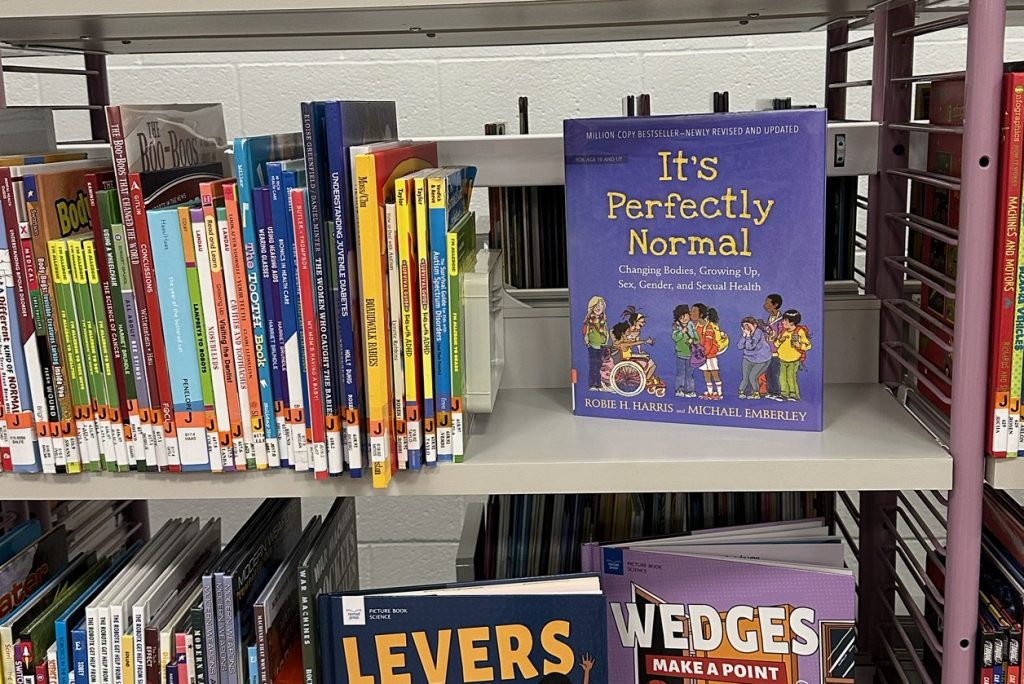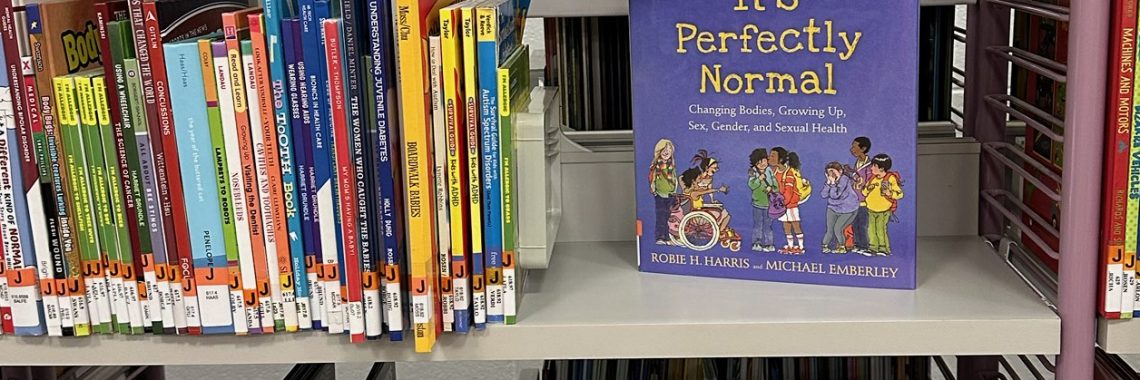Arkansas Libraries Continue to Push Sexually Explicit Materials on Kids

The following is adapted from a column that appeared in Family Council’s April update letter.
Public libraries and school libraries have been a source of contention in recent years. Parents in Arkansas—and throughout the nation—have discovered graphic sexual materials in the children’s section of their local libraries.
It is important to note that progress has been made due to the dedicated efforts of parents, good librarians, and other community members interested in protecting the innocence of children. However, there are still activists in local libraries who are intent on making sexual material available to children. For example, the picture next to this column is from a display in the children’s section of the Craighead County Library last December. The book It’s Perfectly Normal contains graphic pictures of same-sex and opposite-sex couples having sex, descriptions of anal sex, pictures of children masturbating, and more than 30 pictures of naked adults of various ages. It also promotes abortion as a healthy choice.
This book had been redesignated for shelving on a special shelf for parents and teachers rather than for circulation in the normal children’s shelving. However, that did not keep staff members from going out of their way to still expose children browsing the shelves to graphic sexual materials. A concerned parent noticed this book on display to kids and brought it to the attention of the children’s library director. Thankfully, she removed it from the display, but how many kids may have been exposed before the book was reshelved?
It’s a reminder of an eye-opening quote promoted on the Citizens Defending the Craighead County Library Facebook page by those fighting for a right to expose kids to explicit materials:
“It was about kids learning that other kinds of sex existed, or that sex existed at all.”
It should always be a parent’s right and choice about when to teach their kids about sex and what specific materials to use. When did strangers begin to think they are the ones who have this right?
The bottom line is that children’s sections of local libraries are still not safe places for children in Arkansas, and we have much work to do to restore libraries as places where children can safely explore the world of books in their own designated areas. Libraries truly are community treasures, and good libraries and good librarians are a blessing. That’s why Christians and others interested in safeguarding the innocence of children should not give up on our libraries.
Family Council is grateful to Sen. Dan Sullivan for sponsoring Act 372 of 2023 to help deal with these important issues. This good law prohibits giving or sending a child sexual material that is harmful to minors. It also removes exemptions for libraries in the state’s obscenity laws. Some Arkansas libraries have sued to block enforcement of Act 372, and Judge Timothy Brooks has put some sections of the law on a temporary hold pending a final ruling. However, other helpful parts of the law remain in effect. For example, a challenge process for obscene materials in school media centers and libraries remains in effect. A provision that gives parents access to their children’s library records also remains in effect. Amazingly, parents did not have this right of access under state law before the passage of Act 372. Importantly, the section that removes language from state law that shielded school and library personnel from prosecution for disseminating obscene materials to kids also remains in effect. I think we can all agree that no one deserves a legal exemption for knowingly providing obscene materials to kids.
Stephanie Nichols is Director and Chief Legal Counsel for Arkansas Justice Institute, a division of Family Council.





